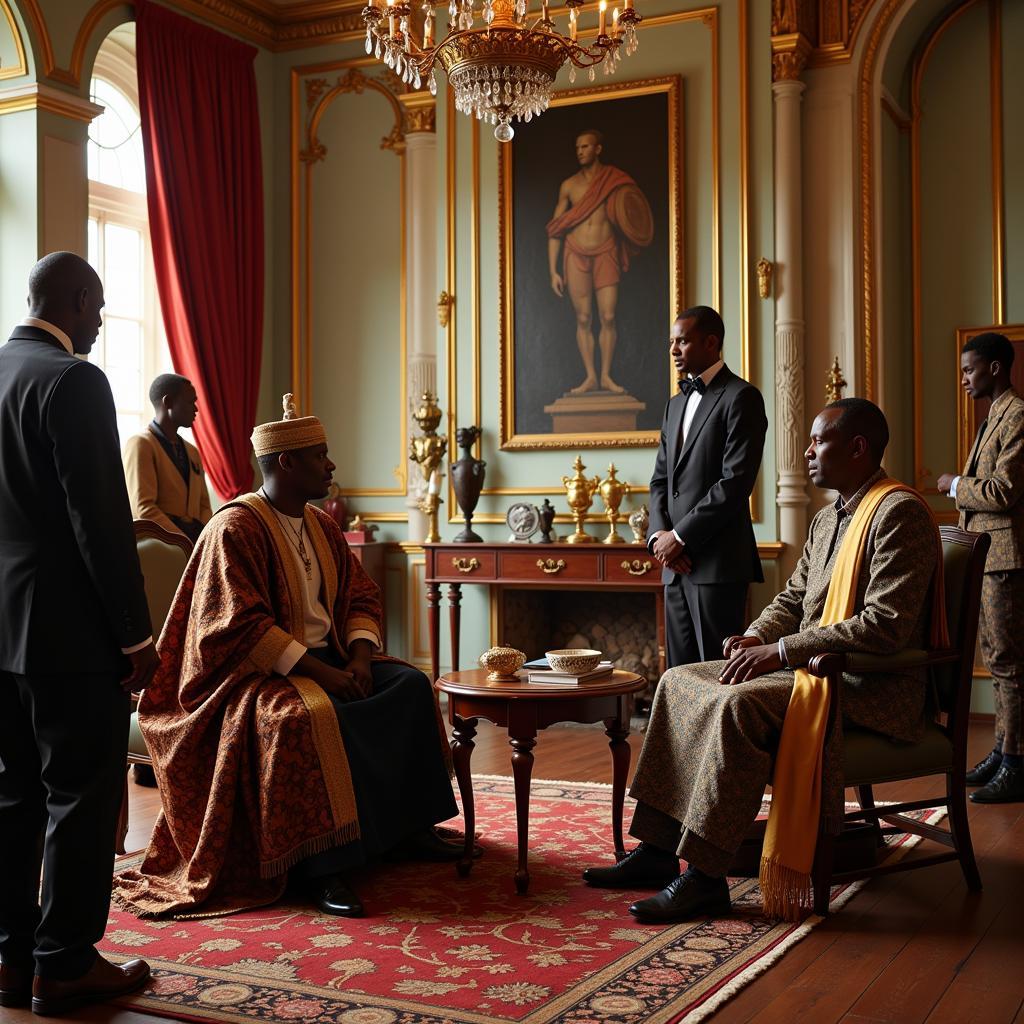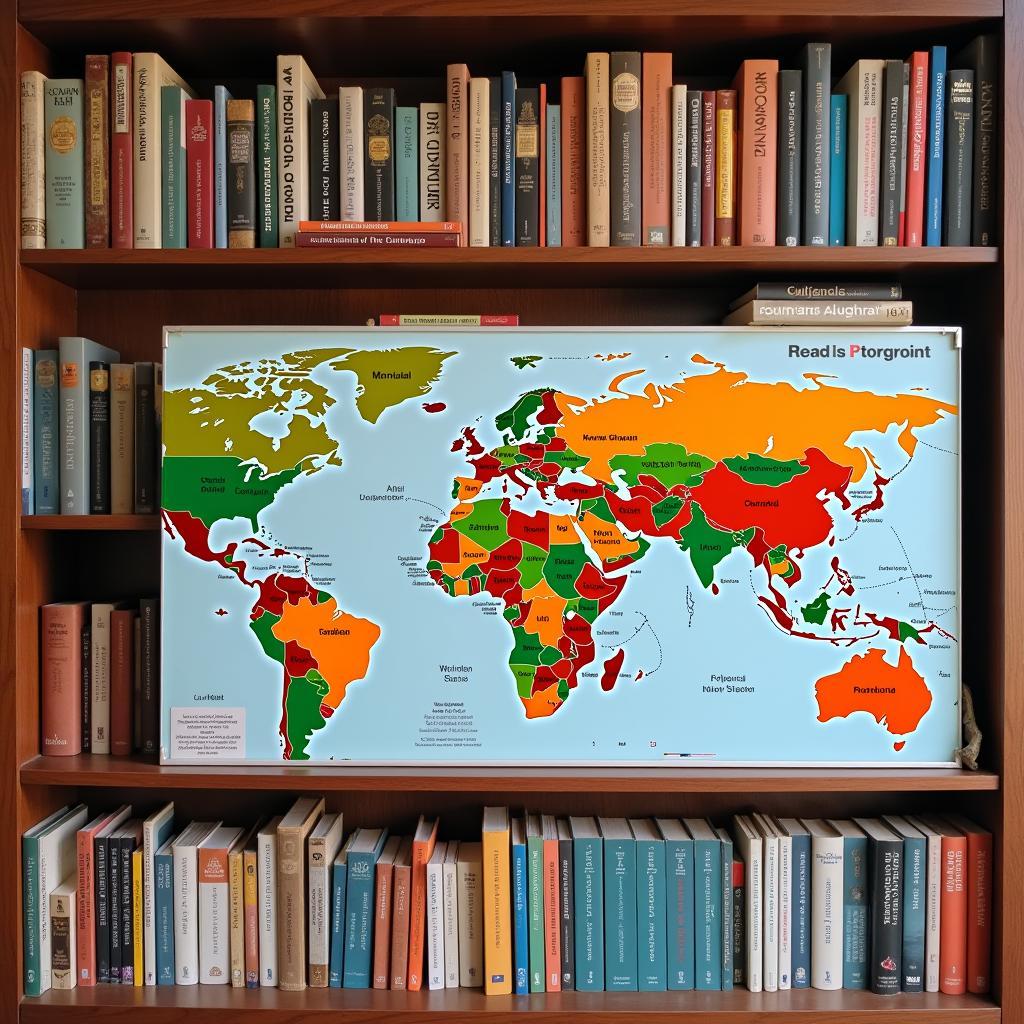Unveiling the Myths: African King and White Slaves Stories
The phrase “African King And White Slaves Stories” often evokes images of powerful rulers and subjugated Europeans. However, the historical reality is far more nuanced than these often-fictionalized accounts. This article will delve into the complexities of power dynamics, slavery, and cultural exchange in Africa, separating fact from fiction and exploring the often-misunderstood narratives surrounding this topic. Let’s uncover the truth behind the myths. Check out this resource on African American Autobiography Harriet for a powerful narrative of freedom and resilience.
The Barbary Corsairs and European Captives
One of the most common associations with “African king and white slaves stories” is the Barbary Coast piracy. From the 16th to the 19th centuries, North African corsairs, operating with the backing of local rulers, captured European ships and enslaved their crews and passengers. These captives, often from coastal communities around the Mediterranean, were taken to cities like Algiers and Tripoli. Their experiences varied; some were ransomed, others forced into labor, and some even converted to Islam and integrated into North African society.
While the Barbary corsairs certainly enslaved Europeans, the narrative is frequently distorted. It’s essential to understand that this wasn’t a racially motivated enterprise. The corsairs were primarily motivated by profit and political power, and their victims were targeted based on opportunity rather than ethnicity.
The Trans-Saharan Slave Trade and its Impact on Power Dynamics
The Trans-Saharan slave trade, predating the transatlantic slave trade, also played a significant role in shaping power dynamics in Africa. This trade saw the movement of enslaved people, including some Europeans, across the Sahara Desert, often destined for North Africa and the Middle East. However, the vast majority of enslaved people in this trade were of African descent, captured and sold within Africa.
While some African rulers certainly benefited from the slave trade, amassing wealth and power, it’s crucial to avoid generalizations. The Trans-Saharan trade was a complex network involving numerous actors, including traders, intermediaries, and local communities. Attributing the entire system to a monolithic “African king” narrative oversimplifies the complex realities of this historical period.
Beyond Slavery: Complex Relationships and Cultural Exchange
It’s important to recognize that interactions between Africa and Europe weren’t solely defined by slavery. There were instances of diplomacy, trade, and even intermarriage. For instance, some European travelers and merchants established themselves in African communities, learning local languages and customs. These more nuanced relationships often get lost in the dominant narratives of enslavement. You may be interested in learning more about modern African American Literature Today.
 African Ruler meeting a European Envoy
African Ruler meeting a European Envoy
Were There White Slaves in Africa? Separating Fact from Fiction
While the enslavement of Europeans in Africa did occur, it’s crucial to avoid sensationalized accounts. The numbers were significantly smaller than the millions of Africans enslaved and transported through the transatlantic slave trade. Moreover, the conditions and duration of enslavement varied greatly depending on individual circumstances. Exaggerated claims of vast numbers of white slaves often stem from historical inaccuracies or deliberate misinformation.
Professor Adebayo Ola, a historian specializing in African history, explains: “It’s vital to approach historical narratives with critical thinking. While European enslavement in Africa occurred, it’s crucial to contextualize it within the broader history of slavery and avoid disproportionate focus that overshadows the larger transatlantic slave trade.” This is a topic often overlooked. Explore further resources like African Countries Not Colonized to broaden your understanding.
Misconceptions and the Importance of Accurate Historical Representation
The topic of “African king and white slaves stories” is often fraught with misconceptions and biases. These narratives can perpetuate harmful stereotypes and obscure the complex historical realities. Accurate historical representation requires acknowledging the diversity of experiences and avoiding simplistic, reductive accounts.
Dr. Fatima Mbaye, a scholar of African studies, emphasizes: “It’s our responsibility to challenge misleading narratives and promote a more nuanced understanding of history. This includes acknowledging the suffering of all victims of slavery while avoiding the pitfalls of historical revisionism.” Learn more about impactful figures like the African Lady Gaga for inspiring contemporary stories.
 Historical documents depicting slavery
Historical documents depicting slavery
Conclusion: Moving Beyond the Myths
The story of “African king and white slaves stories” is more complex than often portrayed. While European enslavement in Africa occurred, it’s essential to understand the broader historical context, avoid generalizations, and acknowledge the diverse experiences of those involved. Moving beyond the myths requires a commitment to accurate historical representation and a nuanced understanding of the complexities of power, slavery, and cultural exchange in Africa. Remember to always examine historical narratives critically and seek out diverse sources of information. Are you intrigued by the stories of remarkable women? Discover the inspiring journey of the African American Lady.
FAQ
- Were there white slaves in Africa? Yes, but the numbers were significantly smaller than the transatlantic slave trade.
- Who were the Barbary Corsairs? North African pirates who captured European ships and enslaved their crews.
- What was the Trans-Saharan slave trade? A trade route across the Sahara desert that involved the enslavement of people, primarily of African descent.
- Did all African kings participate in the slave trade? No, the slave trade involved various actors, and attributing it solely to kings is an oversimplification.
- What are some common misconceptions about this topic? Exaggerated numbers of white slaves and oversimplified narratives that ignore the complexities of history.
- How can we learn more about this topic? By seeking out reputable historical sources and challenging misleading narratives.
- Why is it important to understand this history accurately? To avoid perpetuating harmful stereotypes and promote a more nuanced understanding of the past.
Common Scenarios and Questions:
- Scenario: I’ve heard about thousands of white slaves in Africa. Is this true? While there were white slaves, the numbers are often exaggerated. The transatlantic slave trade involving African slaves was much larger in scale.
- Question: Did African kings sell their own people into slavery? Some did, while others resisted. The dynamics varied across regions and time periods.
Further Exploration:
Consider exploring other articles on our website about the history of slavery, African culture, and the impact of colonialism.
Contact Us
For further assistance, please contact us: Phone: +255768904061, Email: kaka.mag@gmail.com, or visit us at Mbarali DC Mawindi, Kangaga, Tanzania. We offer 24/7 customer support.



